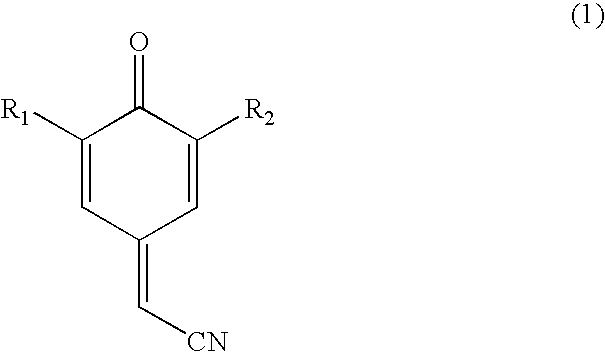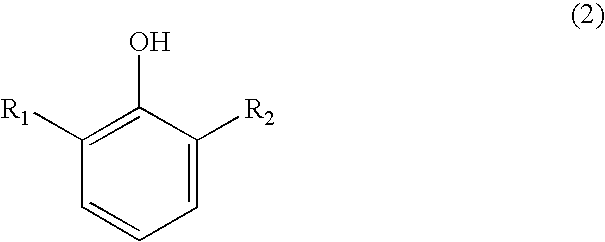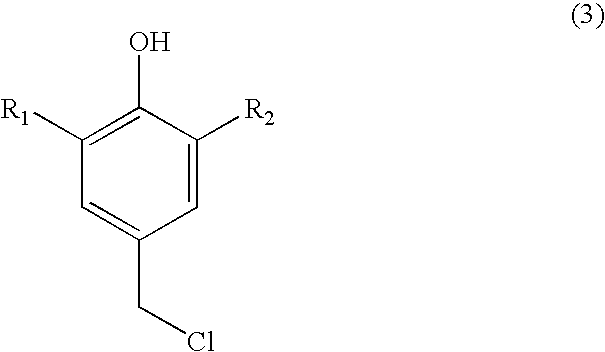Process for preparing substituted 7-cyano quinone methides
a technology of cyano quinone and methide, which is applied in the preparation of carboxylic acid nitrile, organic compound preparation, organic chemistry, etc., can solve the problem that there is no practical process for manufacturing substituted 7-cyano quinone methides
- Summary
- Abstract
- Description
- Claims
- Application Information
AI Technical Summary
Benefits of technology
Problems solved by technology
Method used
Image
Examples
Embodiment Construction
[0008]As used herein, “alkoxy” means an alkyl group, as defined herein, attached to the parent molecular moiety through an oxygen atom. Representative alkoxy groups include methoxy, ethoxy, propoxy, butoxy, and the like.
[0009]“Alkyl” means a monovalent group derived from a straight or branched chain saturated hydrocarbon by the removal of a single hydrogen atom. Representative alkyl groups include methyl, ethyl, n- and iso-propyl, n-, sec-, iso- and tert-butyl, n-octyl, and the like.
[0010]“Cycloalkyl” means a monovalent group derived from a monocyclic or bicyclic saturated carbocyclic ring compound by the removal of a single hydrogen atom. Representative cycloalkyl include cyclopropyl, cyclobutyl, cyclopentyl, cyclohexyl, bicyclo[2.2.1]heptanyl, bicyclo[2.2.2]octanyl, and the like.
[0011]“Haloalkyl” means an alkyl group, as defined herein, having one, two, or three halogen atoms attached thereto and is exemplified by such groups as chloromethyl, bromoethyl, trifluoromethyl, and the l...
PUM
| Property | Measurement | Unit |
|---|---|---|
| temperature | aaaaa | aaaaa |
| temperature | aaaaa | aaaaa |
| water-soluble | aaaaa | aaaaa |
Abstract
Description
Claims
Application Information
 Login to View More
Login to View More - R&D
- Intellectual Property
- Life Sciences
- Materials
- Tech Scout
- Unparalleled Data Quality
- Higher Quality Content
- 60% Fewer Hallucinations
Browse by: Latest US Patents, China's latest patents, Technical Efficacy Thesaurus, Application Domain, Technology Topic, Popular Technical Reports.
© 2025 PatSnap. All rights reserved.Legal|Privacy policy|Modern Slavery Act Transparency Statement|Sitemap|About US| Contact US: help@patsnap.com



